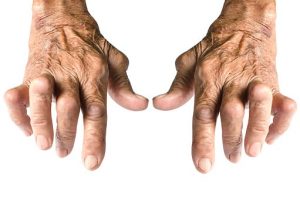
As with many autoimmune diseases, the cause is unknown, so it’s challenging to understand how to completely prevent rheumatoid arthritis from occurring. But there are some steps you can take that may reduce your risk or at least reduce the pain you experience living with rheumatoid arthritis.
Tips to Reduce Your Risk of Rheumatoid Arthritis and Symptoms of RA
Quit smoking: Smoking is a risk factor for RA. In fact, a history of smoking can nearly double your risk of developing RA compared to a non-smoker. Furthermore, if you currently have RA, smoking can worsen your symptoms.
Lose weight: Being overweight may increase your risk of RA, therefore, reducing your weight and boosting your activity level may reduce your risk.
Avoid pollutants: The Mayo Clinic suggests greater exposure to pollutants increases the risk of RA. For example, those emergency workers who were at the World Trade Center on September 11 have a greater risk of autoimmune diseases, particularly rheumatoid arthritis. The link between pollutants and RA isn’t well understood, but there does seem to be some sort of connection. Also, ensure you protect yourself against chemicals, pollutants, and toxic matter.
Speak to your doctor: If RA runs in your family, you’ll want to speak to your doctor about your risk. Furthermore, if you begin to experience joint pain symptoms, then the earlier you speak to your doctor, the earlier you can begin treatment for RA which can prevent serious complications.
Also read:
- Rheumatoid Arthritis Exercises and Yoga Poses to Alleviate Joint Pain
- Benefits of using essential oils for rheumatoid arthritis pain relief
- Tennis elbow: Natural treatment, causes, symptoms and prevention